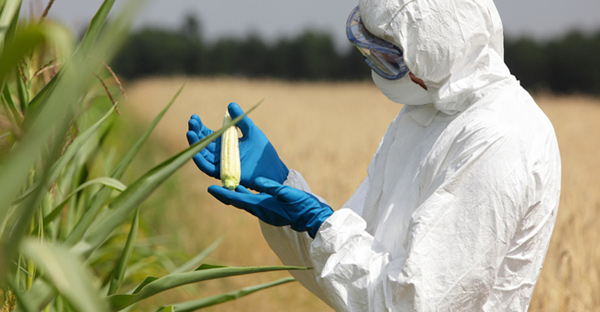 |
| GMOs |
GMOs continue to be a point of contention through a general obscurity and misunderstanding. The reasons behind GMOs obscurity and misunderstanding is an extensive history and a profound impact on modern-day agriculture.
Austin O’Neill | Argonaut
GMOs have a large history that is not always recognized. The common perception is that GMOs are relatively new. While that is a half-truth there is more to the story.
The earliest form of genetically modified organisms occurred approximately 30,000 years ago through artificial selection of animals and crops. The definition of genetic modification according to the United State Department of Agriculture (USDA) is, “The production of heritable improvements in plants or animals for specific uses, via either genetic engineering or other more traditional methods.”
It is a misconception, however, between the difference of genetic modification and genetic engineering.
The definition of genetic engineering by the USDA is, “Manipulation of an organism’s genes by introducing, eliminating or rearranging specific genes using the methods of modern molecular biology, particularly those techniques referred to as recombinant DNA techniques.” It is important to decipher the difference. While both are safe to consume and use, each has a different impact on agriculture and affect policy in different ways.
It is no secret that through agriculture, sustenance is produced. Everyone’s diet, in some capacity, comes from agriculture. It may be from halfway across the world or right here on the Palouse. Even so, with all the acres being used for agriculture it is a startling fact to read from feedingamerica.com that 41 million American’s struggle with hunger. It becomes even scarier when we realize that it is a low number compared with other countries. Struggling with hunger is just one-way GMOs have had a positive impact.
GMOs can help in a variety of ways. But, those ways are not always promoted in daily life.
Not that long ago, approximately 20 years, Hawaii almost lost its papaya production. Insects were transmitting a virus into the papaya production. But through genetic engineering, a scientist was able to insert a harmless part of the virus into the plant so it could become immune, saving the papaya production and much of Hawaii’s economy.
The papaya story from Hawaii is not the only success story, though.
In the late 1990’s a scientist attempted to stop 250,000 to 500,000 children in Southeast Asia from going blind due to a vitamin A deficiency, with the probability of causing the death of half those children within a year.
The solution the scientists found was engineering a new kind of rice that would provide further Vitamin A. In 1999, they succeeded by transferring genes from daffodils and bacteria into the rice, which became known as “golden rice”.
However, both success stories were not completely successful due to Anti-GMO activists. The Hawaiian papaya research facilities and trees were ransacked and set aflame while groups like Greenpeace and Friends of the Earth actively promoted against Golden Rice with an illusion of scientific support.
This is not the first time GMOs had been lobbied against. This sort of hatred for GMOs continues.
After several reports stating that GMOs are not harmful, it is difficult to believe that individuals and groups would be against stopping hunger worldwide. Yet there is. It is important to research unbiasedly when looking at policy regarding GMOs. While GMOs may be controversial, it cannot be denied that they can be helpful.










No comments:
Post a Comment